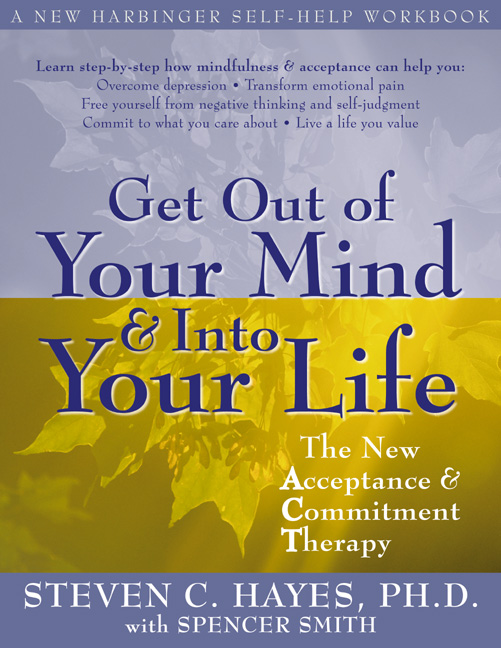Part five of a six-part series on ACT processes
If all living creatures in the universe were gone, there would be nothing left of importance. Pollution? Without life, it would not exist as a “problem.” The river does not care. Death? Were the sun to die away, the rock would stand unconcerned.
Caring is reserved for living things. That tells you something about where you will find what matters. You will not find it in the things we care about, you will find it in the hearts of human beings. Caring is part of life itself.
What is most crushing about psychopathology is that values are put on hold while empty goals are pursued. Ask a person struggling with panic what would be next if panic were suddenly removed from life. After a pause, you will hear hesitant statements of what the person holds dear. “I would travel,” says one; “I’d go back to school,” says another. Meanwhile, life has become an empty struggle with anxiety, seemingly out of necessity rather than a choice.
If your client is not connected to their values, here is how you can sense it:
a) Caring will seem inflexible and repetitive, like an oft-told tale instead of an exploration.
b) Values will seem preordained and a sense of a capacity to choose them or construct them will be absent.
c) Values will be about achieving the approval of others, as if the capacity to choose can be signed away like a power of attorney.
d) Avoiding guilt, shame, or anxiety will dominate over what the person wants in a positive sense.
e) The person will simply be unable to say what they care most deeply about.
It is not possible to value by choice without defusion and acceptance skills. But by the same token, those skills are only ultimately important because they are connected to what matters. Or, to put a finer point on it, perhaps we should say “who matters,” since you will not find values in the things we care about; you will find them in the hearts of human beings.
Catching up on the series? Read part one, part two, part three, part four, or part six now.

Steven C. Hayes, PhD, is Nevada Foundation Professor in the department of psychology at the University of Nevada, Reno. An author of forty-one books and more than 575 scientific articles, he has shown in his research how language and thought leads to human suffering, and has developed acceptance and commitment therapy (ACT)—a powerful therapy method that is useful in a wide variety of areas.
Spencer Smith, is a writer and editor based in Santa Rosa, CA. He is coauthor of The Memory Doctor.


 Why Journaling Is Especially Helpful to Adult Children of Emotionally Immature Parents
Why Journaling Is Especially Helpful to Adult Children of Emotionally Immature Parents